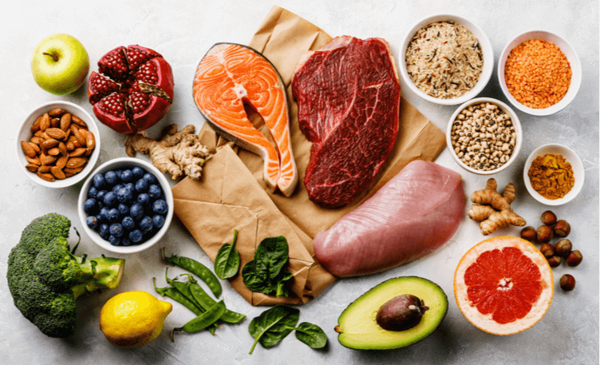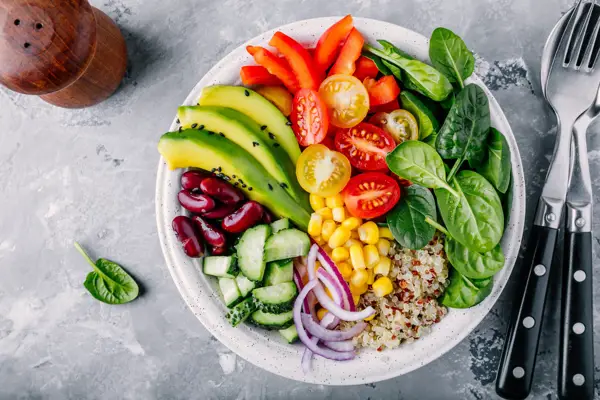Table of Contents
- Why Protein is Crucial for Cancer Patients
- How Protein Helps Maintain Strength and Muscle Mass
- The Role of Protein in Wound Healing and Tissue Repair
- Protein and Its Impact on the Immune System
- Protein-Rich Food Sources for Cancer Patients
- Considerations for Protein Intake in Cancer Patients
- The Importance of Working with a Healthcare Professional
Why Protein is Crucial for Cancer Patients
Protein plays a critical role in supporting the growth, repair, and maintenance of body tissues. For cancer patients, who often experience weight loss, muscle wasting, and decreased immune function, ensuring an adequate protein intake is vital.
How Protein Helps Maintain Strength and Muscle Mass
Cancer and its treatments can lead to muscle loss and weakness. Consuming enough protein helps prevent these adverse effects by supporting muscle maintenance, promoting muscle protein synthesis, and improving physical function and overall quality of life.
Protein is an essential nutrient that plays a crucial role in maintaining strength and muscle mass, especially in cancer patients.
When someone is diagnosed with cancer, their body goes through numerous changes and challenges, including muscle loss, weight loss, and weakened immune system. Consuming adequate amounts of protein becomes crucial during this time as it can help combat these issues.
Protein is made up of amino acids, which are the building blocks of our muscles. It is responsible for repairing and building tissues, including muscle tissues. By increasing protein intake, cancer patients can promote muscle protein synthesis, which aids in maintaining and building muscle mass.
Moreover, protein also plays a significant role in maintaining strength. As cancer patients often experience fatigue and weakness, consuming enough protein can help improve energy levels and enhance physical performance. It also aids in preventing muscle wasting and improves overall body composition.
Another benefit of protein for cancer patients is its ability to support the immune system. A well-functioning immune system is vital for fighting against cancer cells and reducing the risk of infections. Protein intake can help boost immune function and support the body's healing process.
It is important for cancer patients to consult with healthcare professionals or registered dietitians to determine the appropriate protein intake based on their specific condition and needs. They can recommend the right sources of protein, such as lean meats, poultry, fish, dairy products, legumes, and plant-based protein sources, ensuring a balanced diet for optimal health.

The Role of Protein in Wound Healing and Tissue Repair
Protein is essential for proper wound healing and tissue repair, which are particularly crucial for cancer patients undergoing surgeries or other invasive procedures. Adequate protein intake enhances the recovery process and reduces the risk of complications.
Cancer patients often experience compromised immune systems and tissue damage due to the disease itself and aggressive treatment methods such as chemotherapy and radiation therapy. Adequate protein intake plays a crucial role in promoting wound healing and tissue repair for these patients.
Why Protein is Important for Cancer Patients
Protein is essential for the formation of new cells, including those involved in wound healing and tissue repair. It helps to rebuild damaged tissues, fight infection, and strengthen the immune system. Cancer patients require increased protein intake to support these processes.
Protein and Wound Healing
Wound healing involves the production of new collagen, which provides structural support to the injured tissues. Protein plays a key role in collagen synthesis. Adequate protein intake ensures that the body has sufficient amino acids, the building blocks of protein, to support collagen production and promote efficient wound healing.
Protein and Tissue Repair
Cancer treatment can cause tissue damage and inhibit normal cell regeneration. Protein helps in tissue repair by providing the necessary nutrients for cell growth and regeneration. It aids in the formation of new blood vessels and helps rebuild damaged tissues, allowing the body to heal more effectively.
Recommended Protein Intake for Cancer Patients
The recommended protein intake for cancer patients varies depending on individual factors such as age, weight, and treatment plan. Generally, it is advised for cancer patients to consume 1.0-1.5 grams of protein per kilogram of body weight per day. However, it is essential to consult with a healthcare professional or a registered dietitian to determine the specific protein needs for an individual cancer patient.
Sources of Protein
It is important for cancer patients to choose protein sources that are not only rich in protein but also low in saturated fats. Good sources of protein include lean meats, poultry, fish, eggs, dairy products, legumes, nuts, and seeds. Including a variety of protein-rich foods in the diet can help cancer patients meet their protein requirements.
Protein plays a crucial role in wound healing and tissue repair for cancer patients. It supports the body's natural healing processes and aids in rebuilding damaged tissues. It is important for cancer patients to consult with their healthcare team to determine the appropriate protein intake for their individual needs and include protein-rich foods in their diet to promote optimal wound healing and tissue repair.

Protein and Its Impact on the Immune System
Cancer weakens the immune system, making patients more susceptible to infections. Protein plays a crucial role in strengthening the immune response and improving overall immune function, thus helping the body fight against infections and enhancing recovery.
Cancer patients often face weakened immune systems due to the disease itself or the treatments they undergo. Including an adequate amount of protein in their diet can be beneficial in supporting and boosting their immune system.
Protein plays a crucial role in the body's defense mechanism as it aids in the production of antibodies, enzymes, and other molecules that help fight infections and maintain overall health.
When cancer is present, the body's protein requirements may increase. Protein helps repair damaged tissues and supports the production of white blood cells, which are responsible for defending against pathogens and other foreign invaders.
Consuming protein-rich foods can help cancer patients strengthen their immune system and potentially enhance their ability to fight off infections and complications related to cancer treatment.
Some protein-rich food sources include:
- Lean meats such as chicken, turkey, and fish
- Eggs and dairy products like milk, yogurt, and cheese
- Legumes such as beans, lentils, and chickpeas
- Nuts and seeds
- Tofu and other soy-based products
However, it is essential to consult with a healthcare professional or a registered dietitian before making any significant dietary changes, especially for cancer patients. They can provide personalized advice based on individual needs and medical conditions.
In summary, incorporating sufficient amounts of protein into the diet of cancer patients can help support their immune system and potentially improve their ability to fight infections and cope with cancer treatments. It is essential to seek professional guidance to ensure a balanced and suitable protein intake.

Protein-Rich Food Sources for Cancer Patients
Incorporating protein-rich foods into a cancer patient's diet is important. Some excellent sources of protein include lean meats, poultry, fish, eggs, dairy products, legumes, nuts, and seeds. It is essential to choose protein options that are easy to digest and do not cause any discomfort.
Considerations for Protein Intake in Cancer Patients
While protein is crucial for cancer patients, individual needs may vary. Factors such as the stage of cancer, treatment plan, and overall health should be considered. It is recommended to consult with a healthcare professional or a registered dietitian to determine the appropriate protein intake for an individual patient.
The Importance of Working with a Healthcare Professional
When addressing protein intake or any dietary concerns for cancer patients, collaboration with healthcare professionals is crucial. They can provide personalized advice, monitor the patient's nutritional status, and make necessary adjustments based on the individual's needs.
Key Takeaways
- Protein is crucial for cancer patients to maintain muscle mass, promote wound healing, and support the immune system.
- Incorporating protein-rich foods such as lean meats, poultry, fish, and legumes is essential.
- Individual protein needs may vary based on cancer stage, treatment plan, and overall health, so consulting with a healthcare professional is recommended.
Frequently Asked Questions (FAQ)
-
Q: Can too much protein intake be harmful to cancer patients?
A: While protein is important, excessive intake beyond individual needs may burden the liver and kidneys. It's best to work with a healthcare professional to determine the appropriate amount.
-
Q: What if a cancer patient has difficulty digesting protein-rich foods?
A: In such cases, healthcare professionals may recommend protein supplements or other alternative options to ensure adequate intake without discomfort.
-
Q: Are vegetarian protein sources suitable for cancer patients?
A: Absolutely! Vegetarian protein sources like legumes, nuts, and seeds can provide cancer patients with adequate protein. Consulting a registered dietitian can help create a suitable plant-based meal plan.



Recent Comments